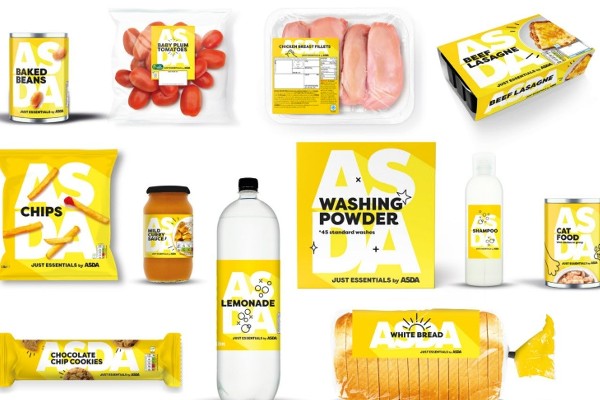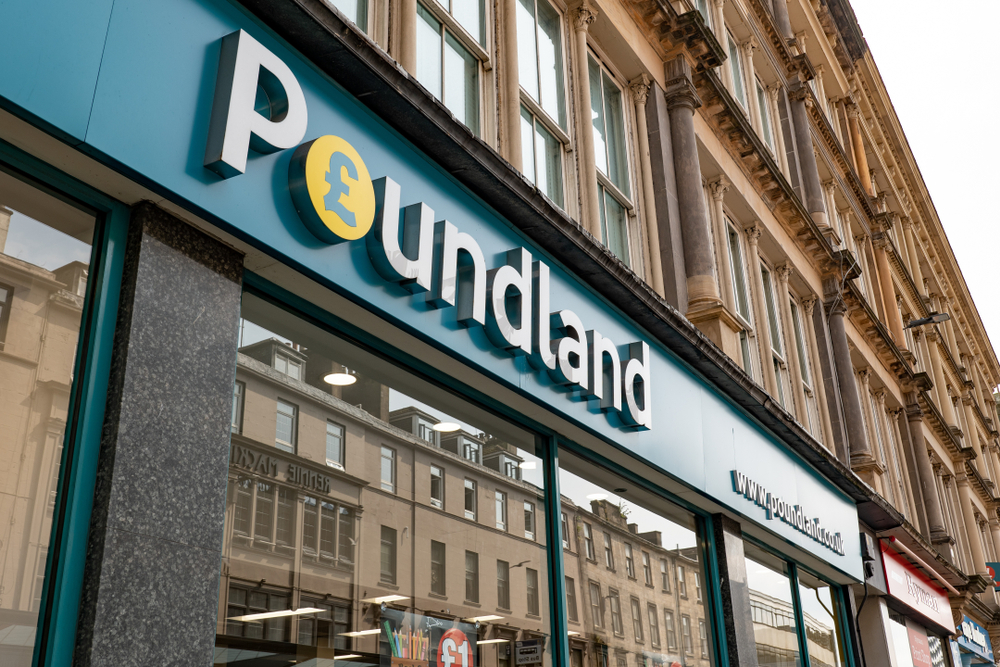It’s no secret that shoppers are turning to value right now. In the world of grocery, sales of value own-label ranges surged by 33% year on year last month, with nearly one in four baskets containing one of these products.
To cater for this growing demand many retailers have launched, or refreshed their value ranges of late.
Boots launched its Everyday range of 60 essential products including shampoo, conditioner, shower gel, period products and toothpaste last month while Asda introduced Just Essentials in May, which replaced its Smart Price range.
But with the market already crowded and the inflation crisis driving even the most loyal customers to shop around, how do retailers make sure their value ranges really appeal to customers right now?
Making prices significantly lower than its standard products has been key to the success of John Lewis’ Anyday brand, which launched last year and has expanded into areas as vast from kidswear to outdoor furniture and has doubled its number of lines to 2,000.
Anyday is 20% cheaper than its regular own brand and branded products, according to executive director Pippa Wicks.

Meanwhile, Boots says its Essentials range was launched to “help customers to identify our lowest priced essential products”.
“As many of us are feeling the pinch and getting ready for a winter of feeling the squeeze more than ever, Boots wanted to ensure that customers could still access the everyday essential products that they need without having to compromise,” a spokesperson says.
As Mintel retail insights director Nick Carroll says, price is clearly “key aspect” of a value range and it needs to be clearly tiered as the entry level product at any given retailer.
Therefore retailers need to make sure their value ranges are notably cheaper than their core range.
But, in John Lewis’s case, which is viewed as a premium brand by many, is the department store not concerned that the lower priced range will cannibalise sales in its higher priced brands? Wicks says not.
“93% of people who buy an Anyday product either also buy a John Lewis branded product or our brands.
“You can see that when you look in people’s literal physical baskets and you can also see that when you look in the online baskets, so what that’s telling us is we’re capturing more of our customers wallet.”
However, Carroll says important for retailers to offer more than just low prices as part of their value lines because consumers take that as a given.
Carroll says that shoppers do not buy on price alone. The retailers that stand out are ones who offer value for money as well as good quality.
“Where the likes of Aldi and Lidl have stood out over the last decade is not just incredibly low prices, but also very good quality,” he says.
“The product being a high quality or a better-than-expected quality really does drive longer term loyalty in the ranges.”
In February, John Lewis pledged a £500 million investment in quality at “great value prices”.
“John Lewis is the brand you can trust for Quality & Value,” the retailer said.
The retailer retired its Never Knowingly Undersold pledge in favour of everyday Quality & Value so that it would appeal to cost-conscious customers.
Wicks said at the time that Anyday “doesn’t compromise on quality and style”.
Meanwhile, Boots and Co-op say quality and ethical products are core to the appeal of their value ranges.
Boots says its Everyday range comes with its “promise of trusted quality, based on decades of research and science, so customers don’t need to compromise” while the Co-op spokesperson tells Retail Gazette that its Honest Value, which launched in 2020, was positioned to make it easy to shop for customers on a budget “without making sacrifices”.
The spokesperson says: “You can buy everyday items at a great price, locally and conveniently, safe in the knowledge that the products live up to the same ethical standards shoppers know and value from Co-op.”
“It’s often thought that when you buy a cheaper product, the quality suffers, however, at Co-op we don’t think it has to be like this, so we’ve developed a value range that has real values – Honest Value.”
Brands that stand out
Wicks says another reason that John Lewis’ Anyday has taken off is the visual appeal of the brand. She says: “Anyday has got that lovely poppy orange colour that stands out”.
It is not the only retailer to use vivid colours to attract shoppers to their value ranges. Asda has opted for bright yellow packaging for its Just Essentials range to ensure that shoppers eye is drawn to the products in store.
Carroll says that striking packaging is important as it helps it stand out on the price.
He says that there has been a move to modernise packaging in recent times and make them look slightly more premium than they used to.
Anyday is a great example of this. The simple orange design is striking but not basic.
However, one would argue that Asda’s Just Essentials does scream value line. Retail analyst Bryan Roberts, founder of Shopfloor Insights, termed the range the “not pretty but it’s effective”.
Perhaps in the high volume world of grocery, it is no-bad thing to look scream ‘cheap’.
Accessibility
Another key tenet of a successful value line, appears to be breadth and accessibilty of product.
An Asda spokesperson tells Retail Gazette that the grocer’s Just Essentials is the largest value range in the market with “just shy of 300 products” and is accessible to all as it is stocked in all its stores and online.
Accessibility is also a key strategy for John Lewis. Wicks highlights that Anyday is stocked in 90 Waitrose stores as well as in its department stores.
How are they performing?
Since launching, Anyday has been thriving. The evidence is in numbers, with Anyday sales rising 28% in the 26 weeks to 30 July.
Meanwhile, Asda’s Just Essentials brand has performed so well that the grocer was forced to introduce rationing.
Carroll says:”At a time with significantly high inflation and other pressures on finances, consumers will be looking to those to help ease the burden on household finances.
“We’ve seen in terms of the popularity of Just Essentials from Asda, that there is clear demand. Value lines certainly are important at the moment.”
Retail analyst Natalie Berg expects this to continue as the rising cost-of-living takes it toll.
“Our affinity for national brands quickly softens during times of economic uncertainty. There’s always been a strong correlation between recessions and private label growth, especially at the value end,” she says.
“What we’re seeing today is a continuation of this to a certain extent, but I’d say it’s become more widespread across the industry. Budget ranges are a common feature in supermarkets but now they’re cropping up in unconventional categories like fashion and health and beauty.”
With the shift to value set to ramp up, retailers would be wise to take lessons from the brands that are reaping the rewards of their budget launches.



















